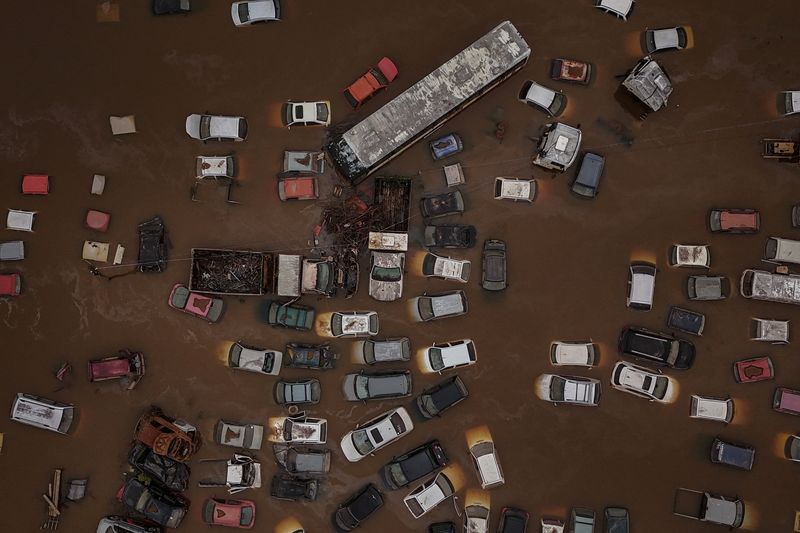A new study has shown that the unusually intense, prolonged and extensive flooding that has devastated southern Brazil was made at least twice as likely by human burning of fossil fuels and trees.
The record disaster has led to 169 deaths, ruined homes and wrecked harvests, and was worsened by deforestation, investment cuts and human incompetence.
The team of international scientists who were behind the study predicted that calamities on this scale – the worst to hit the region – would become more common in the future if there was not a sharp reduction in the greenhouse gas emissions heating the planet.
Available reports show that hundreds of thousands of people in the state of Rio Grande do Sul and in nearby Uruguay are still trying to rebuild their lives after a month of persistent downpours that displaced 80,000 people and left more than a million without essential services such as electricity and potable water.
During the peak of the rains on 1 May, the city of Santa Maria set a 24-hour rainfall record of 213.6mm. In just three days, the state capital, Porto Alegre, was inundated with two months’ worth of rain, transforming roads into rivers, football stadiums into lakes and damaging the city’s international airport so badly it remains closed.
Read also: Unicef study shows Improving energy supply in Pakistan could save 175,000 livesS
It is expected that the economic cost will exceed $1bn (£780m) and the dire impact on agriculture is expected to raise prices of rice – Rio Grande do Sul usually produces 90% of Brazil’s crop – and dairy products across the country.
The region’s focus on agriculture has come at a high cost. The authors of the study said that in recent decades, natural flood defences such as riverside forests and marshes have been cleared for fields, often in violation of weakly enforced environmental regulations.
The catastrophe in Porto Alegre was worsened by weak flood defences, which were supposed to withstand 6 metres of water but reportedly started to fail at 4.5 metres.
In recent years, municipal governments had cut investment in these protections despite warnings that this low-lying, deforested region at the intersection of five major rivers would be increasingly vulnerable to flooding as a result of manmade climate disruption. As well as being incapable of halting the rising waters, the state capital’s flood barriers trapped the flood waters, slowing the process of drying and recovery.
Scientists from the World Weather Attribution group have also confirmed the powerful human influence on the flooding disaster, the fourth to hit Brazil’s southernmost state in the past year and a half.
They analysed a four-day and a 10-day period of the floods by combining weather observations with results from climate computer models. They found that human-driven climate change made the extreme rainfall two to three times as likely and about 6% to 9% more intense. This influence was similar to the natural effect of the El Niño phenomenon.
Story was adapted from the Guardian.
